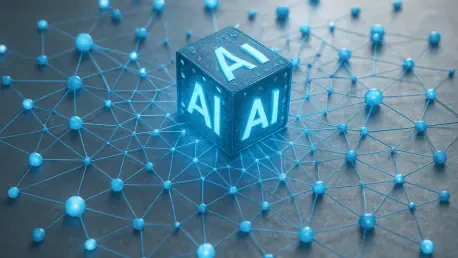Artificial intelligence (AI) is rapidly reshaping the educational landscape, pushing educators to reevaluate traditional teaching methods and find a balance between technological innovation and meaningful human interaction. AI’s integration into education systems has sparked critical discussions about its potential to enhance classroom experiences and its impact on pedagogy. These discussions have highlighted generational differences in acceptance and use of AI among educators, marking a shift in how educational tools are adopted across age groups. A survey observed stark contrasts in AI adoption, with Gen Z educators embracing these technologies more readily than their Gen X and Baby Boomer counterparts. The generational divide in the adoption and perception of AI underscores a broader narrative: as technology advances, the challenge lies in leveraging its benefits while preserving time-honored educational values. The central narrative is a tug of war between embracing cutting-edge innovation and safeguarding established teaching principles that prioritize face-to-face interaction and critical thinking.
Generational Approaches to AI in Education
Recent data highlights a significant generational divide within the educational community’s approach to AI technology. According to a survey conducted by D2L, a formidable 88 percent of Gen Z educators have implemented AI tools during the 2024-25 academic year. This contrasts starkly with Gen X and Baby Boomer educators, whose adoption rates stand at around 48 and 19 percent respectively. These statistics bring into focus a clear enthusiasm among younger educators for integrating AI into their teaching practices. For them, AI represents an invaluable asset in enhancing classroom engagement and preparing students for a digital future where AI applications will likely become indispensable. The appeal of AI for these educators lies not only in its ability to streamline administrative tasks but also in its potential to deliver personalized learning experiences, thus better catering to diverse student needs.
Such generational disparities bring to light different outlooks on the role of technology in education. Younger educators appear more open to experimenting with AI-driven tools, viewing them as pivotal to evolving pedagogical practices. They see AI’s efficiency as crucial for modernizing classrooms and making learning more dynamic. In contrast, more experienced educators often emphasize the importance of maintaining traditional educational methods that prioritize human interaction. Their cautious approach stems from concerns about the potential erosion of these time-honored practices. This divergence in viewpoints underscores the complexity of integrating AI into education—a process that demands sensitivity to varying perceptions shaped by generational experiences. As the educational sector progresses, the task lies in weaving AI into the fabric of teaching while respecting the wisdom and insights refined over generations.
Ensuring Human Touch and Integrity in AI Integration
Despite the potential benefits, educators across generations express recurring concerns regarding AI’s role in schools. Central to these concerns is the necessity of ensuring AI enhances rather than replaces traditional teaching methods. AI, while offering efficiency, must be employed in a manner that safeguards the inherently human aspects of education—personal connections, mentorship, and the nurturing of critical thinking. Common themes emerging from the survey point to educators’ desire for comprehensive policies guiding AI usage, underpinned by a balance between innovation and traditional values. Essential to this balance is autonomy in determining the deployment of AI tools, which some educators believe should lie with educators rather than external bodies like governments.
Insights from the survey reveal skepticism toward AI’s capacity to transform learning environments meaningfully. While AI tools are celebrated for their ability to make learning more efficient, doubts persist about their impact on student engagement or personalization. Educators remain optimistic about AI’s potential but advocate for a measured, thoughtful approach to its adoption. Ensuring responsible use involves prioritizing those areas where AI could inherently add value, such as assisting students with accessibility needs, detecting plagiarism, and supporting lesson plan development. By emphasizing areas where AI can provide tangible benefits, educators can alleviate concerns about its misuse while preserving educational integrity and student engagement.
Addressing Challenges and Ensuring Equitable Use
Delving deeper into AI integration reveals underlying concerns that extend beyond immediate classroom applications. One prominent worry is the potential for AI technologies to erode human connection, fostering a reliance on automated systems at the expense of interpersonal interactions. There is also anxiety over AI’s perceived shortcuts, which could undermine the development of critical thinking skills and academic integrity. Equally pressing are issues related to privacy, equity, and ethical use of AI tools. The rise of AI inevitably draws attention to surveillance concerns, as educators fear that the use of data-driven tools could inadvertently lead to unintentional monitoring or judgment.
Despite these apprehensions, some AI solutions have gained traction in educational settings. OpenAI’s ChatGPT remains one of the most utilized tools, alongside Google’s Gemini and Microsoft’s Copilot. These platforms exemplify the growing preference for established and reliable technology that educators believe can enhance both teaching and learning experiences. As education increasingly harnesses AI technologies, careful attention must be paid to maintaining a fair, accessible, and ethical framework. Continuous dialogue among educators, policymakers, and tech developers will ensure AI’s integration is both innovative and aligned with core educational values.
Charting a Future for AI in Education
Artificial intelligence (AI) is swiftly transforming the educational realm, compelling educators to rethink traditional methods and strike a balance between tech innovation and meaningful human engagement. The infusion of AI into learning systems has ignited lively debates regarding its ability to enrich classroom experiences and its effects on teaching strategies. Insights from these debates reveal significant generational differences in AI acceptance among educators, showcasing a shift in educational tool usage across age groups. A survey highlighted clear contrasts, with Gen Z educators more open to adopting AI technologies compared to Gen X and Baby Boomers. This generational divide in AI perception indicates a larger narrative: as technology progresses, the challenge rests in harnessing its advantages while preserving cherished educational values. The core story is a struggle between embracing cutting-edge tech and maintaining long-standing teaching principles that focus on direct interaction and fostering critical thinking.









